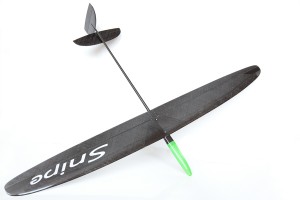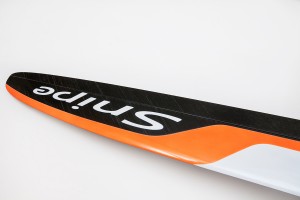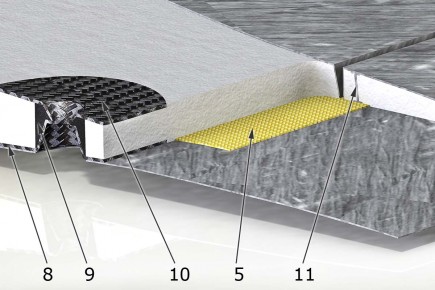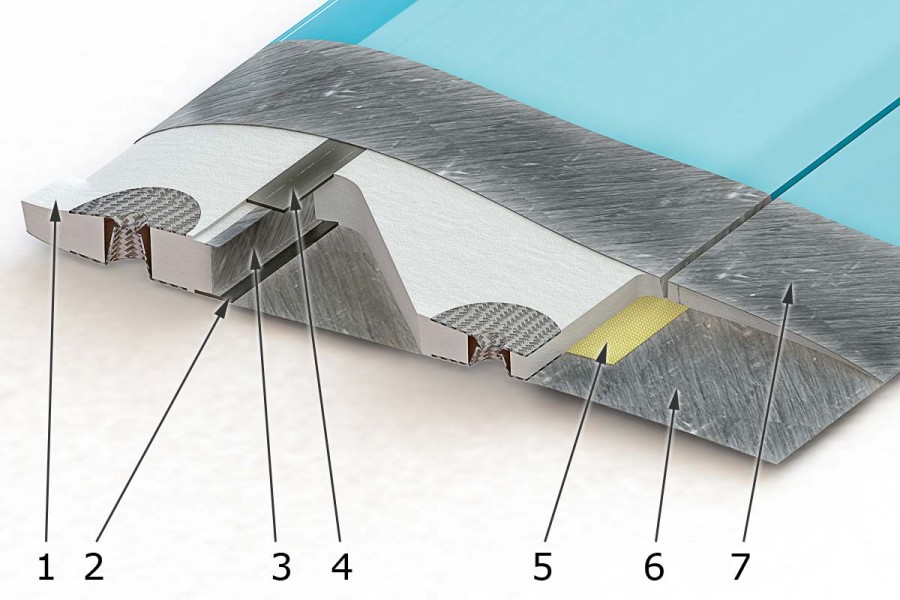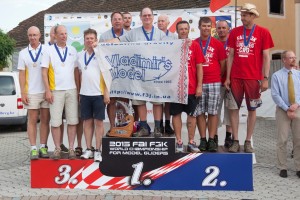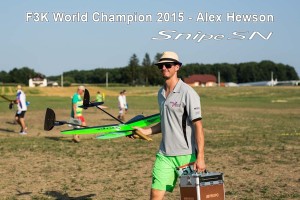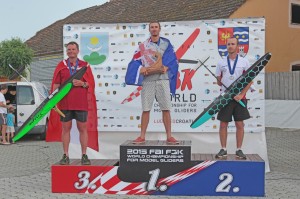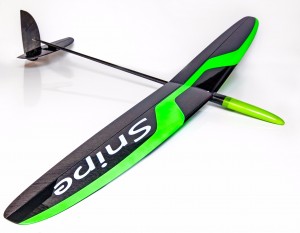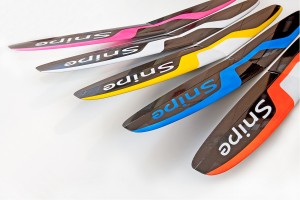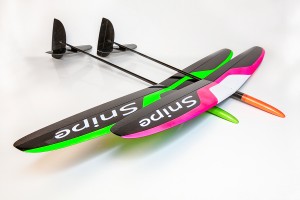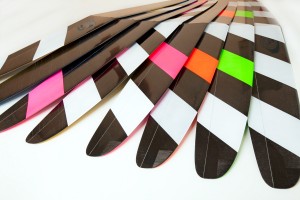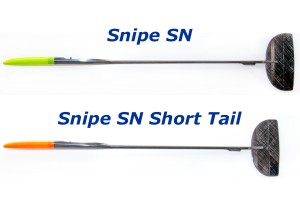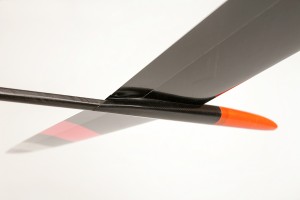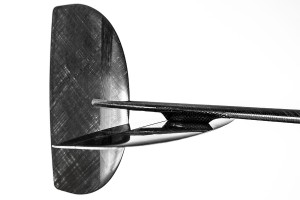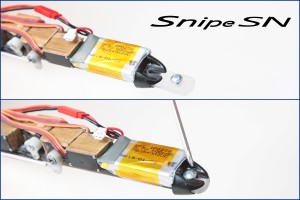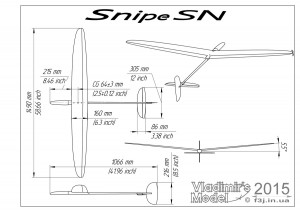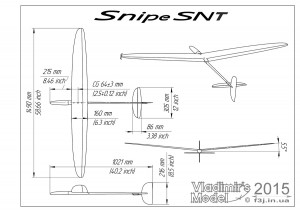Wing
Joe Wurtz had worked for many years to obtain the perfect DLG wing aerodynamics and came to the conclusion that the use of thin profiles is needed, especially for the aileron part of the wing. Analysis of the traditional sandwich and even unitized constructions showed that such wing is not enough rigid and durable. Completely new solution was required.
We managed to integrate the carbon I-web for the spar into the Rohacell core. The spar shear web significantly increased wing rigidity and protects the spardelamination during launch high loading. The other integrated shear web closes the aileron contour and makes a very thin aileron extremely rigid. Rohacell core is made with CNC precision. Wing skin is made of unique ultrathin carbon fabric Carboline 39 g/m ² provide light weight (about 104g), rigidity, strength and accuracy of the wing.
For Snipe SN wing and tail we use the unique ultralight Rohacell, created by our individual order.
The light weight wing version of Snipe SN Light will allow you to win in light wind and float conditions.
The special feature of Snipe SN Light is the use of ultralight carbon fabric Carboline 26 g/m², providing the wing weight from 94g.
The strong wing version of Snipe SN Strong provides a high powerful launch with a ballast in windy conditions. Reinforcement wing longitudinal Carboline layers marginally increases the weight, but significantly increased the strength of the Snipe SN Strong wing. Additional aileron reinforcement counteracts flutter at high launch speed. (Snipe SN Strong wing weight is about 115g.)
Snipe SN wing construction
1. Ultralight Rohacell core;
2, 4. Carbon spar cap;
3. Carboline spar shear web;
5. Aileron hinge tape;
6,7. Carboline skin layer
Carboline_SC_39_2/45 — for Snipe SN;
Carboline_SC_26_2/45 — for Snipe SN Light
Carboline three layer custom preform — for Snipe SN Strong;
8. Lower strengthening of wing fitting;
9. Solid filler;
10. Upper strengthening of wing fitting;
11. The aileron shear web.
The original Snipe,created by Joe Wurts in 2013, has been the world’s best discus launch glider since public release, winning more top level F3K competitions than any other model. This unique glider has the advantage in all phases of flight: very easy and high launch, quick climb rate in thermals, extremely low sink rate in dead air, as well as an excellent glide ratio, even at higher speeds, giving good penetration when returning upwind.
The new Snipe SN with a 20mm shorter nose was made as an experiment for F3K World Championship 2015. Team New Zealand, F3K World Champion 2015 Alex Hewson and some other top pilots used this modification during Championship to great effect.
The Short Nose has these benefits:
- Reduced moment of inertia. This reduces the initial yaw of the Snipe SN during launch, increasing launch altitude.
- The reduced inertia also makes the Snipe more stable in turbulence or when circling, improving performance and controllability.
- The Snipe is responds better to elevator input, reducing pilot workload.
- When circling in a thermal, Snipe SN turns faster and due to its lower weight needs less bank angle, increasing the climb rate.
Alex Hewson added the Snipe SN’s advantages to his own unique skills, to become F3K World Champion 2015. The New Zealand Snipe Team (Alex Hewson, Joe Wurts, Kevin Botherway) also placed first in the 2015 F3K World Championships.
We produce three wing types for different flight condition: Snipe SN Light; Snipe SN; Snipe SN Strong for light, normal, and windy flight conditions.
The new Snipe SN color scheme allows you to choose a unique Snipe that you will not confuse with other models, even when flying at a distance.
Snipe SNT Light (short nose&tail) with 45 mm shorter tail boom.
We make two fuselages for the new Snipe, the Snipe SN (with a short nose, as described above), and the Snipe SNT with a short nose and tailboom. Each fuselage is available in versions for left and right handed throwers.
The Snipe SNT feels solid and very stable cruising around, and light and lively in pitch when thermalling and manoeuvring. The plane is a bit more twitchy in yaw due to the lower yaw damping.
With the shorter tailboom, the pilot’s input becomes more important, and more skill is required to get the best from this thoroughbred glider. The pitch characteristics are definitely better, the launch does not seem to be affected and may even be slightly improved, though by too small a difference to measure. The plane’s response in yaw from turbulence is the downside with a shorter tailboom, especially if mated with a heavy wing. Once the air gets bumpy, then the increased inertia of the heavier wing makes the handling less pleasant. With a lighter wing, the shorter tailboom works well. That is why we recommend Snipe SNT for more advanced pilots, and with a light wing only.
Options for equipment selection and placement to obtain the correct CG for Snipe SN

|
№ |
Equipment arrangement (position number according to the picture) |
Equipment weight |
Nose ballast for CG 64 mm |
CG without ballast |
||||||||||||||||
|
|
1 |
|
2 |
|
3 |
|
4 |
|
5 |
|
6 |
|
||||||||
|
1 |
Receiver |
JR 285MG |
JR 285MG |
JR 285MG |
JR 285MG |
Li-Po 600mAh |
74 gr |
0 gr |
64 mm |
|||||||||||
|
2 |
Li-Po 600mAh |
JR 285MG |
JR 285MG |
D47 |
D47 |
Receiver |
59,4 gr |
0 gr |
64 mm |
|||||||||||
|
3 |
MKS DS75K |
MKS DS75K |
Li-Po 600mAh |
JR 285MG |
JR 285MG |
Receiver |
65 gr |
0 gr |
64 mm |
|||||||||||
|
4 |
KST X08 |
KST X08 |
Li-Po 600mAh |
JR 285MG |
JR 285MG |
Receiver |
66 gr |
0 gr |
64 mm |
|||||||||||
|
5 |
Li-Po 600mAh |
KST X08 |
KST X08 |
JR 285MG |
JR 285MG |
Receiver |
66 gr |
-1 gr (trimmed ballast holder) |
63 mm |
|||||||||||
|
6 |
Li-Po 600mAh |
KST X08 |
KST X08 |
KST X08 |
KST X08 |
Receiver |
58 gr |
4 gr |
67 mm |
|||||||||||
|
7 |
Li-Po 600mAh |
KST X08 |
KST X08 |
MKS DS75K |
MKS DS75K |
Receiver |
57 gr |
5 gr |
68 mm |
|||||||||||
|
8 |
Li-Po 600mAh |
MKS DS75K |
MKS DS75K |
MKS DS75K |
MKS DS75K |
Receiver |
56 gr |
5.5 gr |
70 mm |
|||||||||||
|
9 |
Li-Po 600mAh |
KST X08 |
KST X08 |
D47 |
D47 |
Receiver |
51,4 gr |
6 gr |
72 mm |
|||||||||||
Options for equipment selection and placement to obtain the correct CG for Snipe SNT
|
№ |
Equipment arrangement (position number according to the picture) |
Equipment weight |
Nose ballast for CG 64 mm |
CG without ballast |
||||||||||||||||
|
|
1 |
|
2 |
|
3 |
|
4 |
|
5 |
|
6 |
|
||||||||
|
1 |
MKS DS75K |
MKS DS75K |
MKS DS75K |
MKS DS75K |
Receiver |
Li-Po 300mAh |
45.5 gr |
2 gr |
65 mm |
|||||||||||
|
2 |
KST X08 |
KST X08 |
KST X08 |
KST X08 |
Receiver |
Li-Po 300mAh |
47.5 gr |
4 gr |
66 mm |
|||||||||||
|
3 |
MKS DS75K |
MKS DS75K |
D47 |
D47 |
Receiver |
Li-Po 300mAh |
39.9 gr |
6 gr |
68 mm |
|||||||||||
|
4 |
KST X08 |
KST X08 |
D47 |
D47 |
Receiver |
Li-Po 300mAh |
40.9 gr |
7 gr |
69 mm |
|||||||||||
|
Parts weight |
|
|
JR 285MG |
12 gr |
|
MKS DS75K |
7.5 gr |
|
KST X08 |
8 gr |
|
Diamond D47 |
4.7 gr |
|
Receiver |
5.5-6.5 gr |
|
Tail |
12.8 gr |
|
Li-Po 600 mAh |
20 gr |
|
Li-Po 300 mAh |
9.5 gr |

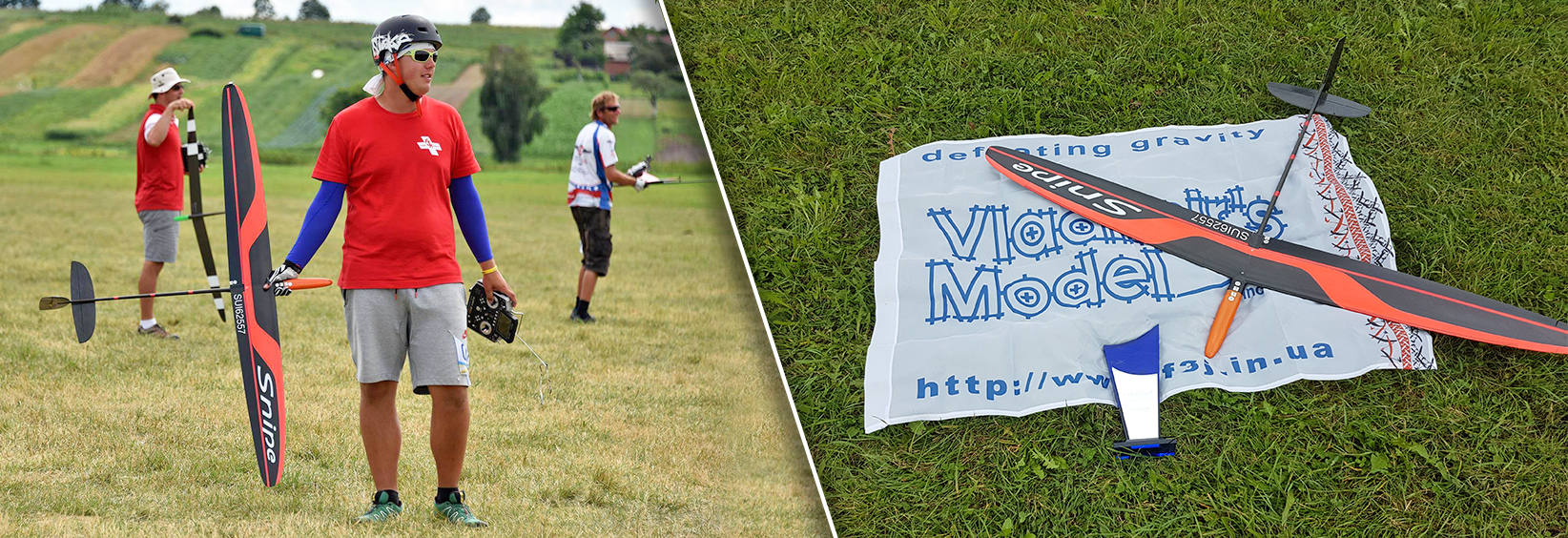
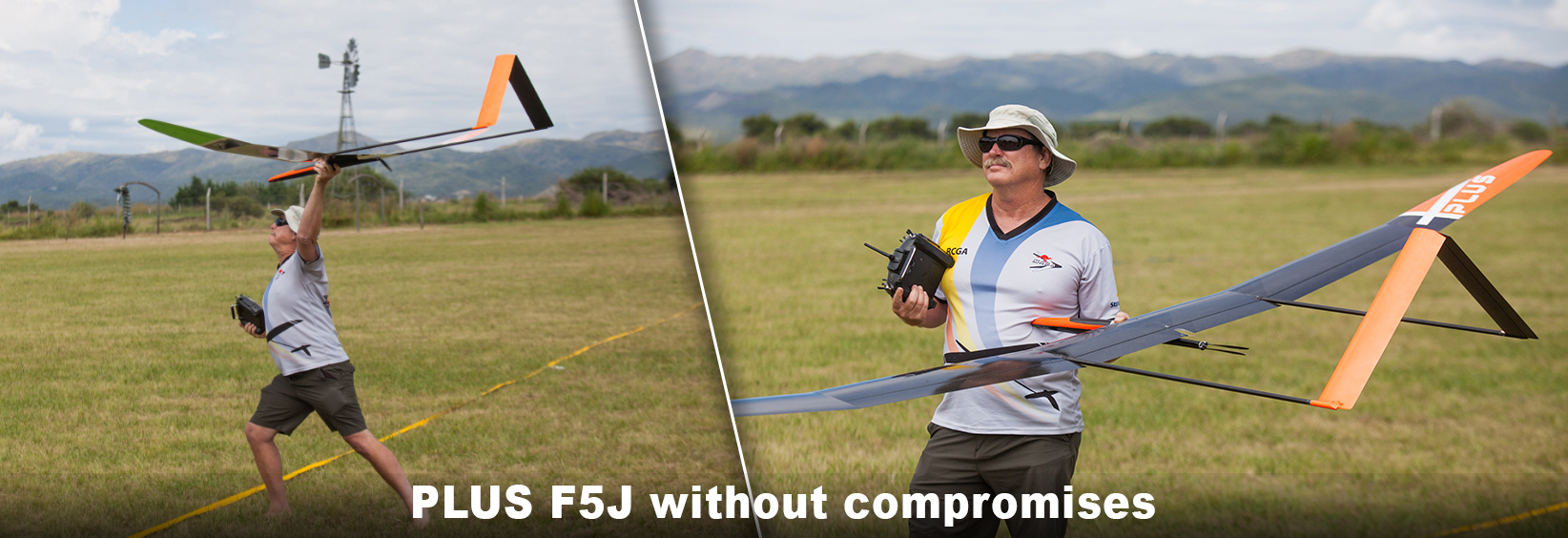
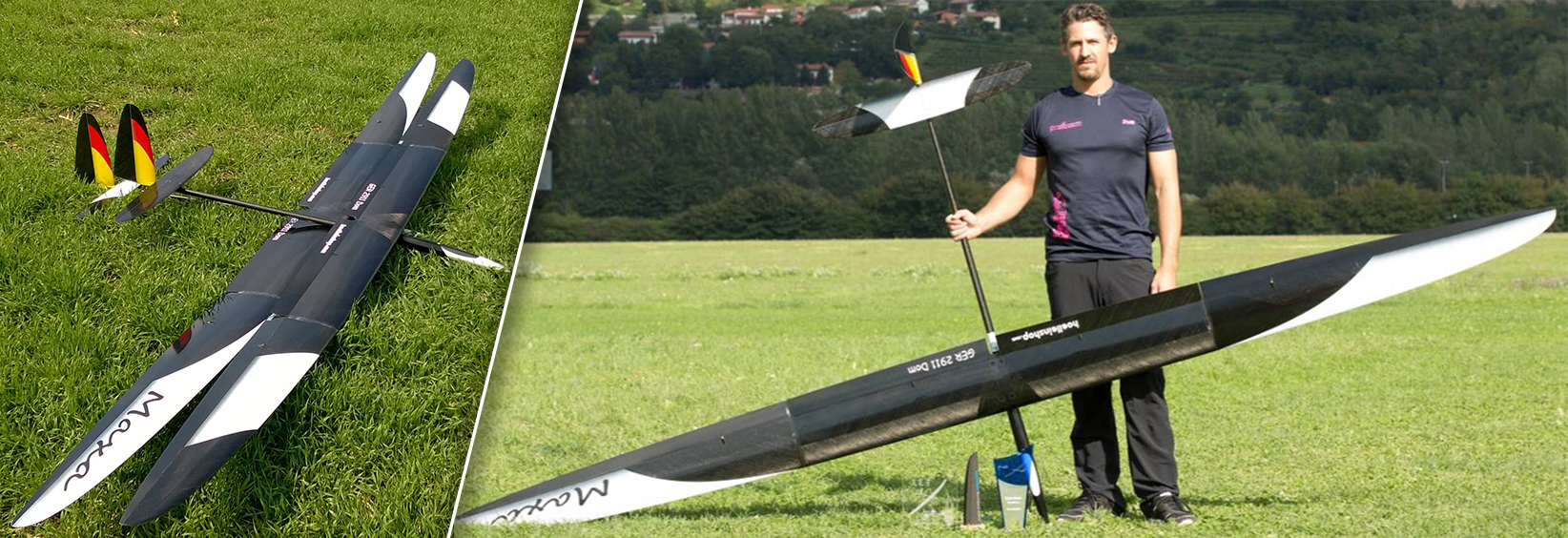
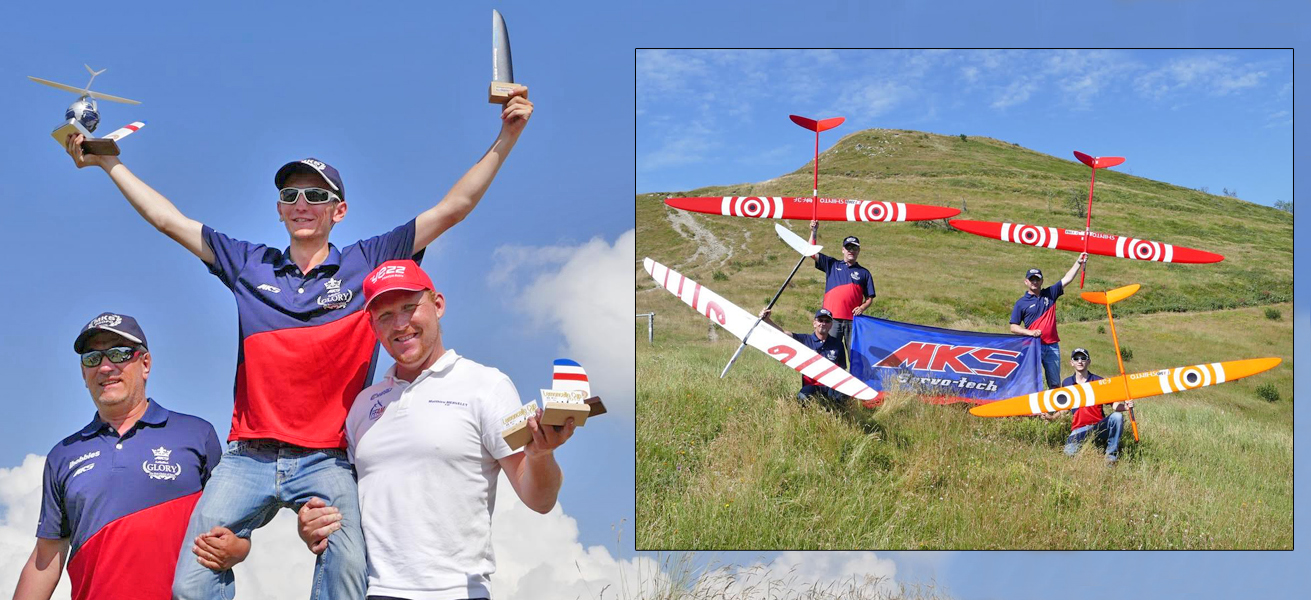
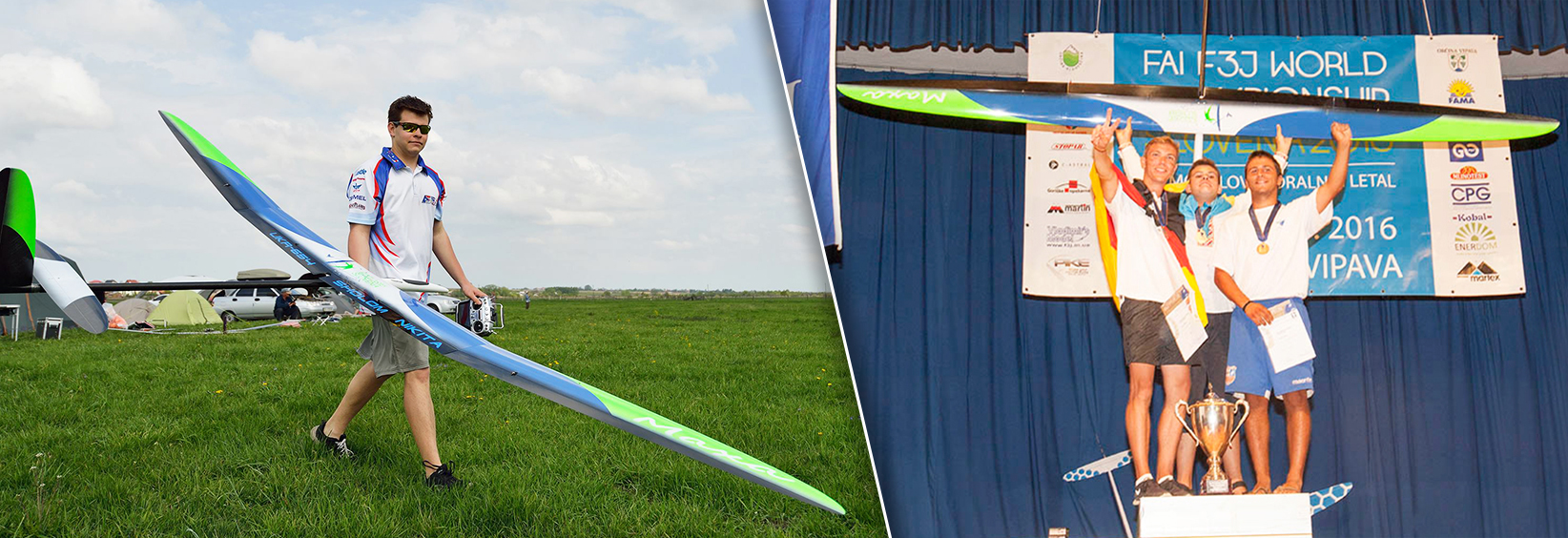

 Top
Top